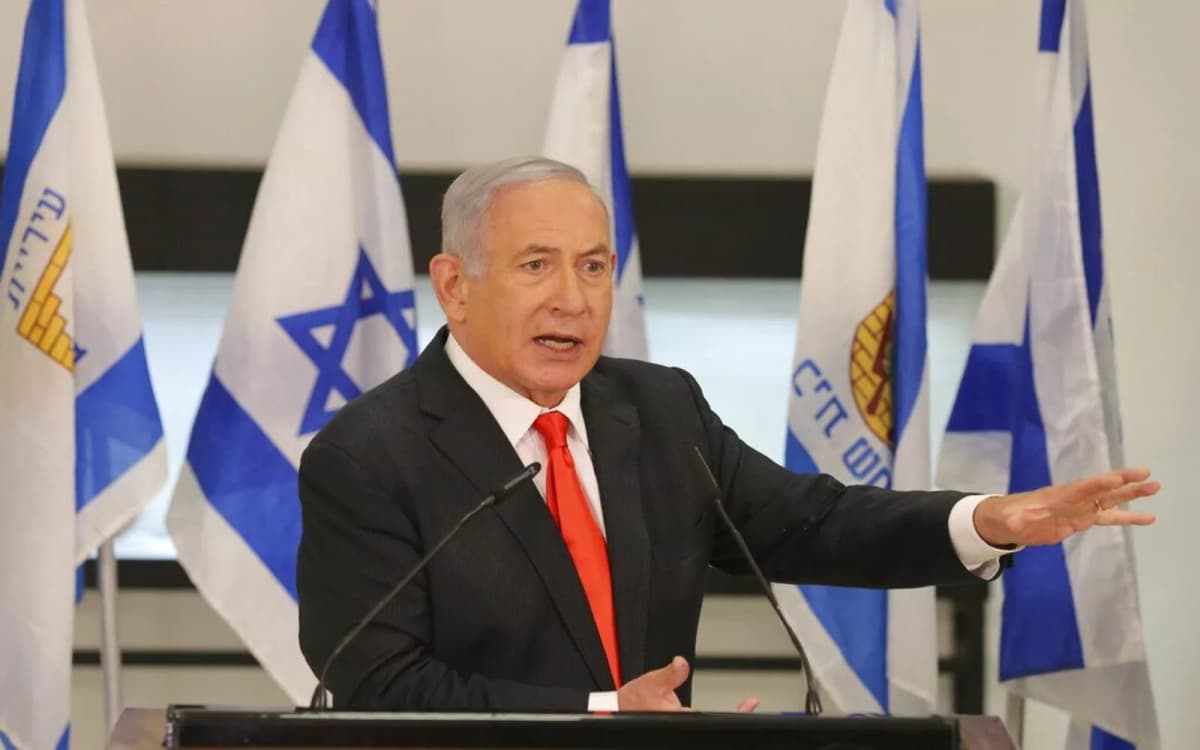Israel defies global backlash over Gaza City takeover plan

Israeli Prime Minister Benjamin Netanyahu expressed disappointment to German Chancellor Friedrich Merz over Berlin’s suspension of arms exports, accusing the country of "rewarding Hamas terrorism".
Israel has dismissed mounting international criticism after its security cabinet approved a controversial plan to seize control of Gaza City as part of an expanded military campaign.
Defence Minister Israel Katz said nations condemning the move and threatening sanctions would "not weaken our resolve". He declared, "Our enemies will find us as one strong, united fist that will strike them with great force."
The plan, approved by the security cabinet, outlines five main goals: disarming Hamas, securing the release of all hostages, demilitarising the Gaza Strip, taking direct security control of the territory, and creating "an alternative civil administration that is neither Hamas nor the Palestinian Authority".
According to Israeli media, the first phase will focus on taking full control of Gaza City and relocating its estimated one million residents further south.
Forces would also move into refugee camps in central Gaza and areas believed to hold hostages. A second phase would be launched weeks later alongside an increase in humanitarian aid.
The move has triggered strong condemnation from the United Nations and several governments, including the UK, France and Canada, while prompting Germany to suspend military exports to Israel.
Hamas said the decision to occupy Gaza City "constitutes a new war crime" and warned it would "cost [Israel] dearly".
On Friday, foreign ministers from the UK, Germany, Italy, New Zealand and Australia issued a joint statement rejecting the plan, warning it would "aggravate" the already "catastrophic" humanitarian situation. "Any attempts at annexation or of settlement extension violate international law," they said.
UN human rights chief Volker Turk cautioned that the plan would "result in more massive forced displacement, more killing, more unbearable suffering, senseless destruction and atrocity crimes".
Other international leaders voiced strong objections:
-
UK Prime Minister Keir Starmer said the plan was "wrong" and would "only bring more bloodshed".
-
Australian Foreign Minister Penny Wong urged Israel "not to go down this path", warning it would worsen the crisis.
-
Turkey’s foreign ministry called on the global community to stop the plan, accusing Israel of seeking to "forcibly displace Palestinians from their own land".
-
A spokesperson for China’s foreign ministry told AFP: "Gaza belongs to the Palestinian people and is an inseparable part of Palestinian territory."
Israeli Prime Minister Benjamin Netanyahu expressed disappointment to German Chancellor Friedrich Merz over Berlin’s suspension of arms exports, accusing the country of "rewarding Hamas terrorism".
Inside Israel, the decision has sparked criticism from some military officials and from families of hostages still held in Gaza. The Hostages Families Forum Headquarters said the move was leading "toward a colossal catastrophe for both the hostages and our soldiers", warning that the 20 believed to be alive would be placed in greater danger.
The United States has been less critical, with President Donald Trump saying it was "pretty much up to Israel" whether to fully occupy Gaza.
The Israel Defense Forces currently control about three-quarters of Gaza, with nearly all of its 2.1 million residents now crammed into the remaining quarter. The UN estimates that 87% of the territory is either a militarised zone or under evacuation orders.
Large areas in central Gaza and along the Mediterranean coast remain outside Israeli control, including refugee camps that are now home to much of the displaced population.
Most Gazans have been uprooted multiple times since the war began, with UN experts warning that the territory is on the brink of famine.
Israel’s restrictions on goods entering Gaza, which it says are aimed at weakening Hamas, have deepened the deprivation.
The World Health Organization reported that July saw the highest number of acute malnutrition cases among children since the war began, with nearly 12,000 under the age of five affected.
The conflict erupted after Hamas attacked Israel on 7 October 2023, killing around 1,200 people and taking 251 hostages. Israel’s retaliatory offensive has since killed at least 61,158 Palestinians, according to Gaza’s health ministry.
